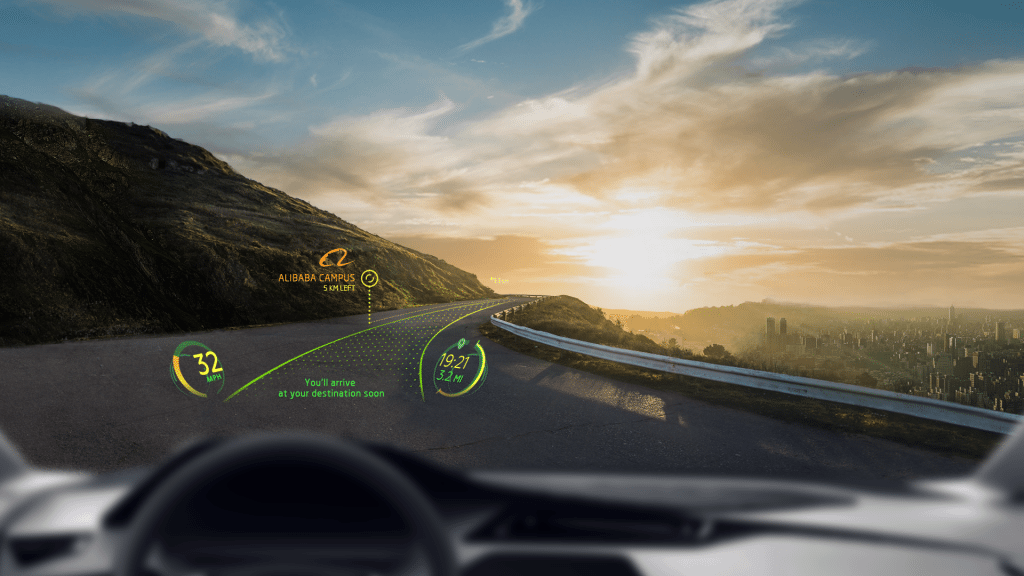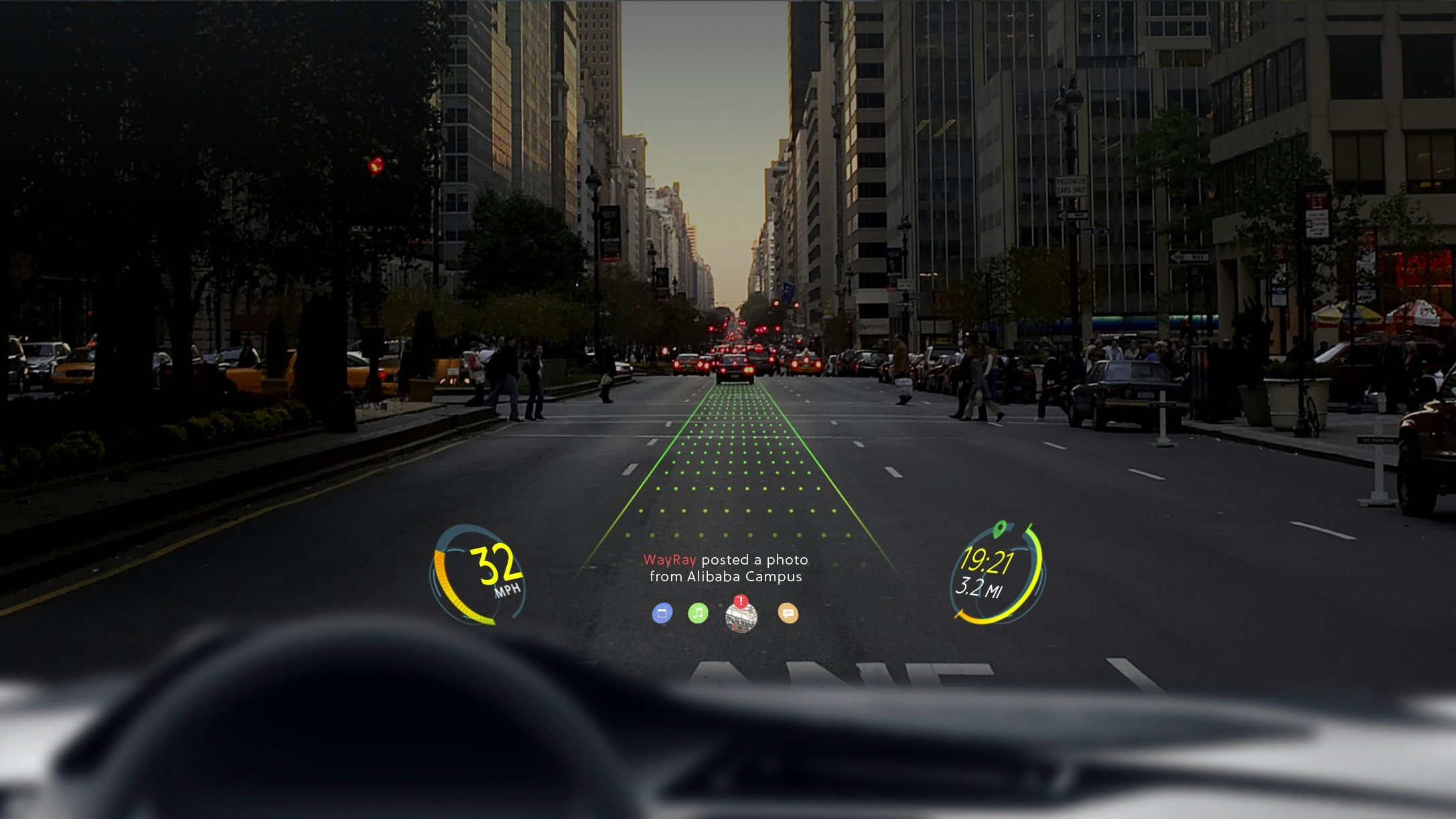China’s e-commerce and internet giant Alibaba Group is counting on a bright future for augmented reality (AR) technology in the automobile industry. After pouring funds in AR industry leader Magic Leap and Israeli developer Infinity AR in 2016, the company recently led an US$18 million investment in a Swiss technology startup firm WayRay. Wayray will work closely with Alibaba-backed Chinese company Banma Technologies to develop and produce an AR-enabled car navigation system, which is expected to be adopted in one of Banma’s 2018 car models.
The company announced on Tuesday that it completed its Series B financing round, receiving funding from several investors including Alibaba Group. As a part of the investment, WayRay also entered into a partnership with Banma Technologies, a startup company established by Alibaba and Chinese carmaker SAIC Motor in 2015, dedicated to developing internet-connected automobiles for Chinese consumers.
Founded in 2012, WayRay specializes in developing holographic head-up displays (HUD), which essentially work to create LED-like images that float above the car's dashboard that a driver can use to navigate the road. WayRay's and Banma's new car system will not only allow for AR navigation, but will offer drivers driving assistant notifications, a virtual dashboard, and other functions.

Alex Shi, CEO of Banma, said in a press statement that AR adoption in a car can provide the driver with added benefits on multiple levels. “Rather than distracting the driver, AR navigation actually improves safety as the warnings and traffic data are placed right on the windshield,” he said. “Moreover, with the rise of self-driving cars and enhanced auto control mechanisms, AR systems will enhance entertainment and communication within the car.”
Before its deal with WayRay, Alibaba had already been combining AR technology with its e-commerce platforms. During its annual Singles' Day shopping festival last year, Tmall launched a Pokémon go-like AR game called “Catch a Tmall Cat” to engage with Chinese shoppers and help brands boost sales.
Aside from relying on AR to create a buzz around a product, Alibaba also uses the technology to provide Chinese shoppers with genuine utility. For example, the company introduced an AR video shopping feature developed by Magic Leap last year. The new feature allows Chinese users to preview the real size of products in their home, which can help their decision-making process when it comes to buying furniture and decor. Similarly, Alibaba has applied AR’s “close relative” virtual reality (VR) via launching its Buy + VR service last year to improve the shopping experience of some fashion and luxury retailers, including Macy's and Matsumoto Kiyoshi.
It's not only Alibaba recognizing the potential of AR. Chinese tech firms like Tencent and Baidu all have recognized that AR and VR technologies are able to give consumers more seamless connected experiences that blur the distinction between bricks and clicks. Consumers will likely see continued enthusiasm from Chinese digital and technology firms in investing in AR and VR in the near future.
